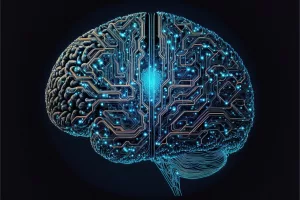Artificial Intelligence (AI) is no longer a futuristic concept; it is shaping the world around us at an astonishing pace. Whether you’re a complete beginner or a seasoned professional looking to sharpen your skills, there are numerous ways to dive into the world of AI. But with so much information out there, it can feel overwhelming to figure out where to start. In this detailed guide, we will explore the 15 best ways to learn about AI, including free and paid options, online resources, books, courses, and practical techniques. If you’re serious about understanding Artificial Intelligence, this article will be your roadmap.
1. Enroll in Online AI Courses
One of the most effective ways to learn about AI is by enrolling in structured online courses. Platforms like Coursera, Udemy, edX, and DeepLearning.AI offer comprehensive programs covering the fundamentals and advanced concepts of AI. These courses typically cover topics like machine learning, deep learning, neural networks, and natural language processing. Some popular options include:
- AI For Everyone by Andrew Ng (Coursera): A beginner-friendly course that demystifies AI and its implications.
- Machine Learning Specialization (Coursera): Offers a deep dive into machine learning algorithms and their applications.
- Deep Learning Specialization (DeepLearning.AI): Focuses on neural networks and deep learning techniques.
- Artificial Intelligence Nanodegree (Udacity): Provides a well-rounded education in AI fundamentals and applications.
These courses provide video lectures, quizzes, assignments, and even certification that can boost your professional profile. Many learners find the structured format helpful for maintaining motivation and focus.
Practical Tips for Choosing the Right Course
- Assess Your Current Skill Level: If you’re a beginner, start with introductory courses like “AI For Everyone.” For more advanced learners, specializations in deep learning or reinforcement learning might be more suitable.
- Check Course Reviews and Ratings: Look for feedback from past students to gauge the quality and relevance of the course content.
- Consider Time Commitment: Some courses are self-paced, while others have fixed schedules. Choose one that fits your availability.
2. Read Books on Artificial Intelligence
If you prefer reading and deep theoretical understanding, there are several must-read AI books that can give you both technical and non-technical insights. Some of the most recommended books include:
- Artificial Intelligence: A Modern Approach by Stuart Russell & Peter Norvig: This is often considered the bible of AI, covering a wide array of topics in detail.
- Life 3.0: Being Human in the Age of Artificial Intelligence by Max Tegmark: Explores the future implications of AI on society and humanity.
- Hands-On Machine Learning with Scikit-Learn, Keras, and TensorFlow by Aurélien Géron: Offers practical guidance on implementing machine learning algorithms.
- Superintelligence: Paths, Dangers, Strategies by Nick Bostrom: Delves into the ethical and strategic considerations of AI development.
Reading these books can help you understand the history, future, ethical concerns, and technical side of AI. They provide a mix of theory, practical examples, and philosophical discussions that broaden your perspective.
Building a Reading Routine
- Set a Daily or Weekly Goal: Allocate a specific amount of time each day or week to read. Consistency is key to absorbing complex material.
- Join Book Clubs or Online Discussions: Engaging with others who are reading the same book can enhance your understanding and retention.
- Take Notes and Highlight Key Points: This will help you review and consolidate knowledge later.
3. Follow AI Blogs and News Platforms
The world of AI is constantly evolving. Following trusted blogs and websites will keep you updated with the latest trends, breakthroughs, and tutorials. Some recommended platforms are:
- Towards Data Science (Medium): Features articles by industry experts and enthusiasts covering a wide range of AI topics.
- AI Weekly: A newsletter that curates the most important AI news and research each week.
- Machine Learning Mastery by Jason Brownlee: Offers practical tutorials and guides for machine learning practitioners.
- Google AI Blog: Shares insights into Google’s AI research and applications.
- OpenAI Blog: Provides updates on cutting-edge AI research and developments.
By subscribing to these platforms, you can stay informed and continuously learn from industry experts. This is especially helpful for spotting emerging trends and technologies early.
Staying Engaged with AI News
- Schedule Regular Reading Times: Dedicate specific times during your day or week for catching up on AI news.
- Participate in Comment Sections: Engaging with authors and other readers can provide new insights and deepen your understanding.
- Use RSS Feeds or Aggregator Apps: Tools like Feedly can help you organize and streamline your reading list.
4. Watch AI YouTube Channels and Lectures
YouTube is an excellent free resource to learn about AI concepts visually. Several channels offer tutorials, interviews, and explainers that simplify complex topics. Some popular AI-focused YouTube channels include:
- Two Minute Papers: Short videos that summarize recent AI research papers.
- 3Blue1Brown: Known for visually intuitive explanations of complex mathematical concepts.
- Sentdex: Provides Python tutorials and practical AI projects.
- CodeEmporium: Offers detailed coding tutorials for AI and machine learning.
- Lex Fridman Podcast: Features interviews with AI experts and thought leaders.
Additionally, universities like MIT and Stanford upload entire AI course lectures for free, offering top-tier education at no cost.
Making the Most of YouTube Learning
- Create Playlists: Organize videos by topic or difficulty level to create a structured learning path.
- Engage with the Community: Comment on videos and participate in discussions to enhance your learning.
- Practice Alongside Tutorials: Implement what you learn by coding along with the videos.
5. Participate in AI Bootcamps and Workshops
For those who prefer an immersive and fast-track learning experience, AI bootcamps are a great option. Bootcamps are intensive programs that typically last a few weeks to a few months. Some leading AI bootcamps include:
- Data Science Retreat: Offers a comprehensive curriculum with a focus on practical skills.
- Springboard AI/Machine Learning Bootcamp: Provides mentorship and career support along with technical training.
- FourthBrain AI Bootcamp: Focuses on building a strong foundation in machine learning and AI.
- AI Saturdays: Community-driven, free AI study groups that meet weekly.
These workshops often include real-world projects, mentorship, and career support. They are ideal for those looking to make a career switch or rapidly upskill.
Choosing the Right Bootcamp
- Research the Curriculum: Ensure it covers the topics you’re interested in and aligns with your career goals.
- Check Alumni Reviews: Feedback from past participants can give you an idea of the program’s quality and outcomes.
- Consider Post-Bootcamp Support: Look for programs that offer continued learning resources and career services.
6. Engage in AI Projects and Competitions
Hands-on experience is crucial to mastering AI. Working on projects helps you apply theoretical knowledge and solve real-world problems. You can also participate in AI competitions to test your skills against others. Popular platforms for AI projects and competitions include:
- Kaggle: Offers a variety of datasets and competitions to challenge your skills.
- DrivenData: Focuses on data science competitions with a social impact.
- AIcrowd: Hosts a wide range of AI challenges across different domains.
- Zindi Africa: Provides opportunities to solve real-world problems specific to the African context.
Building projects like image classifiers, chatbots, or recommendation systems will significantly boost your learning curve. It’s a practical way to showcase your skills to potential employers.
Tips for Successful AI Projects
- Start with Small, Manageable Projects: Focus on projects that are within your current skill level to build confidence and competence.
- Document Your Work: Keep a record of your project process, challenges, and solutions. This is valuable for future reference and for showcasing your abilities.
- Collaborate with Others: Working with peers can provide new perspectives and improve problem-solving skills.
7. Learn Programming and AI Libraries
A solid foundation in programming is essential for AI learning. Python is the most popular language in the field due to its simplicity and vast ecosystem. Additionally, you should become familiar with essential AI libraries and frameworks such as:
- TensorFlow: An open-source library for numerical computation and machine learning.
- PyTorch: Known for its dynamic computation graph and ease of use in research.
- Scikit-learn: Offers simple and efficient tools for data mining and analysis.
- Keras: Provides a user-friendly API for building neural networks.
- OpenCV: Useful for computer vision tasks.
- NLTK & SpaCy: Libraries for natural language processing.
Learning to code and use these tools is a necessary step in your AI journey. They enable you to implement and experiment with various AI models.
Effective Programming Practice
- Set Up a Dedicated Workspace: Create a distraction-free environment to write and test your code.
- Practice Regularly: Consistent coding practice is vital to developing fluency in programming languages and libraries.
- Contribute to Open Source Projects: This offers real-world experience and the opportunity to collaborate with other developers.
8. Join AI Communities and Forums
Joining online communities can accelerate your learning by allowing you to ask questions, share knowledge, and network with like-minded individuals. Some active AI communities include:
- r/MachineLearning (Reddit): A forum for discussions on machine learning research and applications.
- Stack Overflow: A go-to resource for coding-related queries.
- Kaggle Forums: A place for sharing insights and seeking help on data science topics.
- AI Alignment Forum: Focuses on the philosophical and ethical aspects of AI.
- DataTau: A community for sharing and discussing data science news and resources.
Being part of these forums exposes you to different perspectives, solutions, and discussions. It’s an invaluable way to stay connected with the AI community.
Maximizing Community Engagement
- Be Active and Contribute: Answer questions, share resources, and participate in discussions to build a reputation and learn more effectively.
- Seek Feedback on Your Projects: Sharing your work can lead to constructive criticism and improvement.
- Network with Peers and Professionals: Building relationships can lead to collaboration opportunities and career advancement.
9. Subscribe to AI Newsletters and Podcasts
For those who want to learn passively while commuting or exercising, AI newsletters and podcasts are a fantastic option. Top AI newsletters include:
- Import AI by Jack Clark: Provides insightful analysis on AI research and policies.
- The Batch by DeepLearning.AI: A weekly digest of AI news and developments.
- Data Elixir: Curates the best data science and AI content from around the web.
Top AI podcasts include:
- Lex Fridman Podcast: Features deep conversations with AI researchers and technologists.
- Eye on AI: Discusses the latest AI technology and its implications.
- Data Skeptic: Explores data science and AI topics with a skeptical lens.
- The TWIML AI Podcast: Interviews with AI practitioners and researchers.
Subscribing to these will help you stay in the loop with the latest developments. They offer diverse perspectives and insights from experts in the field.
Making the Most of Audio Content
- Listen During Commutes or Exercise: Utilize downtime to absorb new information and insights.
- Take Notes on Key Points: Jot down interesting ideas or concepts to explore further.
- Engage with Podcast Communities: Many podcasts have associated forums or social media groups where you can discuss episodes and connect with other listeners.
10. Complete AI Certification Programs
If you’re looking for a formal credential, AI certifications can enhance your career prospects. Some reputed certifications include:
- Google Professional Machine Learning Engineer: Validates your ability to design, build, and deploy machine learning models.
- IBM AI Engineering Professional Certificate: Covers AI fundamentals, machine learning, and deep learning techniques.
- Microsoft Certified: Azure AI Engineer Associate: Focuses on building AI solutions using Azure services.
- AWS Certified Machine Learning Specialty: Demonstrates expertise in building and deploying machine learning models on AWS.
These certifications usually require you to pass an exam and demonstrate applied skills in AI and machine learning. They can be a valuable addition to your resume.
Preparing for AI Certification Exams
- Review Exam Objectives and Topics: Understand the scope and focus areas of the certification.
- Use Practice Exams and Study Guides: These resources can help you identify knowledge gaps and familiarize yourself with the exam format.
- Join Study Groups: Collaborating with others preparing for the same exam can provide support and motivation.
11. Study AI Research Papers
For those who want to go beyond basics, reading AI research papers is essential. Top conferences where cutting-edge AI papers are published include:
- NeurIPS (Neural Information Processing Systems): Focuses on machine learning and computational neuroscience.
- ICML (International Conference on Machine Learning): Covers a wide range of machine learning topics.
- CVPR (Conference on Computer Vision and Pattern Recognition): Specializes in computer vision research.
- ACL (Association for Computational Linguistics): Dedicated to natural language processing and computational linguistics.
Platforms like arXiv.org host free preprints of research papers for you to study and analyze. This is an excellent way to stay at the forefront of AI innovation.
Tips for Reading Research Papers
- Start with the Abstract and Conclusion: These sections provide an overview of the paper’s purpose and findings.
- Focus on Methods and Results: Understanding the methodology and results can give insights into how the research was conducted and its implications.
- Discuss Papers with Peers: Collaborative discussions can enhance comprehension and provide diverse perspectives.
12. Learn AI Ethics and Responsible AI
Understanding AI Ethics is just as important as technical knowledge. As AI systems impact society, ethical concerns like bias, privacy, and transparency become critical. Courses and resources for learning AI ethics include:
- Elements of AI – Ethics module: Offers an introduction to the ethical considerations in AI.
- AI Now Institute publications: Provides research and reports on AI ethics and policy.
- Ethics of AI by Stanford Online: Covers ethical challenges and frameworks in AI development.
This knowledge will prepare you to build fair, responsible, and ethical AI solutions. It’s crucial for anyone working with AI to understand the broader societal impacts of their work.
Incorporating Ethics into AI Practice
- Conduct Bias Audits on Models: Regularly test your AI models for potential biases and fairness issues.
- Engage with Diverse Stakeholders: Involve a wide range of perspectives in AI development and deployment.
- Stay Informed on Ethical Guidelines and Regulations: Keep up with evolving standards and laws related to AI ethics.
13. Use AI Learning Apps and Platforms
Several mobile apps and interactive platforms are designed to teach AI fundamentals in a gamified, engaging way. Some popular AI learning platforms include:
- DataCamp: Offers interactive courses on data science and machine learning.
- Brilliant.org: Provides challenges and quizzes to build problem-solving skills.
- Khan Academy: Features lessons on computer science and mathematics which are foundational for AI.
- Codecademy: Offers coding courses, including Python, which is essential for AI.
These platforms are ideal for beginners who want to learn on the go. They provide interactive exercises that reinforce learning through practice.
Maximizing Learning with Apps
- Set Daily Learning Goals: Use app notifications to remind yourself to complete lessons regularly.
- Track Your Progress: Monitoring your advancement can boost motivation and highlight areas needing improvement.
- Engage with App Communities: Many platforms offer forums or leaderboards where you can connect with other learners.
14. Attend AI Conferences and Webinars
Participating in AI conferences, meetups, and webinars will expose you to expert speakers, case studies, and networking opportunities. Some of the biggest AI conferences include:
- NeurIPS: A premier conference for machine learning and artificial intelligence.
- AAAI Conference on Artificial Intelligence: Covers a broad range of AI topics and applications.
- AI Expo: Focuses on AI technologies and their business applications.
- O’Reilly AI Conference: Offers a mix of industry and academic insights on AI trends.
Even if you can’t attend in person, many of these conferences offer virtual options. They provide a platform to learn about the latest research, tools, and strategies from leading experts.
Making the Most of Conferences
- Plan Your Schedule in Advance: Review the agenda and prioritize sessions that align with your interests and goals.
- Network Actively: Use breaks and social events to connect with speakers and attendees.
- Follow Up on Key Learnings: After the conference, review your notes and explore topics that intrigued you.
15. Start Your Own AI Blog or YouTube Channel
One of the best ways to solidify your AI knowledge is by teaching others. Start an AI-focused blog, podcast, or YouTube channel where you share what you learn, explain concepts, or showcase your projects. Not only does this deepen your own understanding, but it also helps you build a personal brand in the AI community.
Getting Started with Content Creation
- Choose a Niche or Focus Area: Specializing in a particular aspect of AI can help you stand out and attract a dedicated audience.
- Maintain a Consistent Posting Schedule: Regular content updates keep your audience engaged and improve your skills over time.
- Engage with Your Audience: Respond to comments and feedback to foster a community around your content.
Learning about Artificial Intelligence is a journey that requires curiosity, consistency, and a willingness to stay updated. By combining these 15 methods — from online courses and books to hands-on projects and community engagement — you can build a strong foundation and advance your knowledge over time. Whether you’re aiming for a career in AI engineering, exploring AI applications in business, or simply curious about the technology that’s shaping our future, these learning strategies will help you navigate the complex and fascinating world of Artificial Intelligence.




